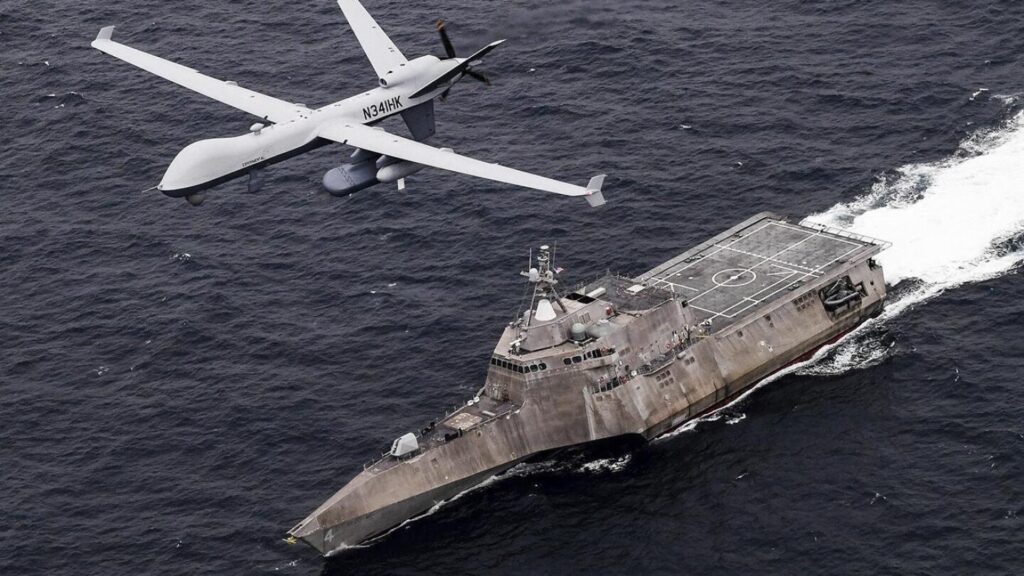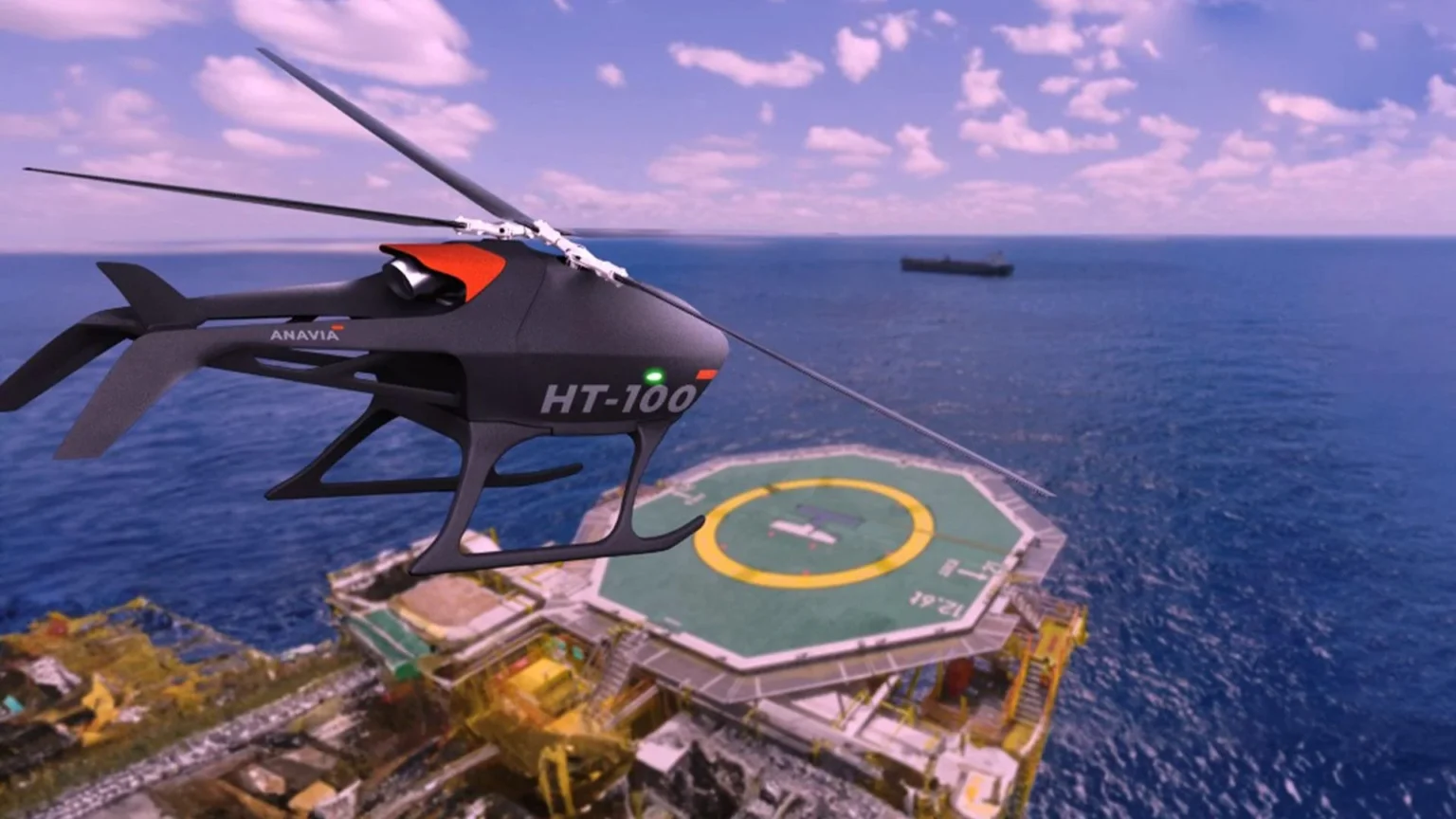The United Arab Emirates (UAE) is rapidly emerging as a central hub for naval drone technology, drawing attention from global manufacturers eager to collaborate and expand within the region. This surge aligns with the UAE’s strategic emphasis on autonomous maritime systems to bolster its naval capabilities. With increasing regional security challenges, the UAE is positioning itself as a leader in naval drone technology, investing heavily in both local and international collaborations.
Strategic Emphasis on Autonomy
The UAE military’s focus on autonomous systems has led to significant investments in naval assets, making the nation an attractive market for foreign manufacturers of unmanned surface and underwater vehicles. With a naval force of approximately 3,000 active personnel, the UAE is prioritizing unmanned systems to enhance operational efficiency and address capability gaps. By integrating autonomous naval platforms, the country aims to expand its maritime defense capabilities while minimizing risks to personnel.

Over the past few years, the UAE has demonstrated a growing interest in artificial intelligence (AI)-driven defense solutions. Naval drones, both surface and underwater, play a critical role in surveillance, reconnaissance, and combat operations. These systems offer a cost-effective and efficient alternative to traditional manned naval fleets. By embracing such technology, the UAE seeks to strengthen its strategic positioning in the Gulf region while ensuring the protection of its territorial waters.
International Collaborations and Showcases
At major defense exhibitions like the International Defence Exhibition (IDEX) and Naval Defence Exhibition (NAVDEX) in Abu Dhabi, various unmanned surface vessels (USVs) and underwater drones have been unveiled, highlighting the UAE’s commitment to cutting-edge technology. One notable addition to the market is the WAM-V, an advanced unmanned surface vessel produced by a U.S.-based company. This vessel has already been deployed for U.S. naval operations in the region and is marketed as a versatile platform capable of supporting multiple payloads, including underwater sonar for anti-submarine warfare, communication nodes, and aerial drones.
The CEO of the manufacturing company emphasized the platform’s versatility and proven operational success. To further cement its presence in the Gulf region, the company has partnered with a local distributor to provide ongoing support and customization for the UAE’s specific maritime security needs.
Local Innovations and Partnerships
Beyond international players, Emirati companies are making significant strides in naval drone technology. Abu Dhabi Ship Building, in collaboration with several local technology firms, has unveiled the DV10, an optionally-manned interceptor vessel. This 10.2-meter craft is designed to support remote weapon stations of varying calibers and features swarming capabilities, which allow multiple units to operate in coordination. This development reflects the UAE’s increasing focus on homegrown defense solutions.
Another emerging player in the field is Arzanah, an Abu Dhabi-based company specializing in underwater drones. During the latest defense exhibitions, Arzanah introduced two new unmanned underwater vehicles (UUVs). The first, named “Al Kasir,” is a three-meter-long drone designed for underwater intelligence, surveillance, and reconnaissance (ISR) missions. With AI-based autonomous navigation and integrated sensor systems, this compact UUV is ideal for real-time monitoring of maritime threats.
The second, named “Ghawwas,” is a larger, 11-meter-long unmanned underwater combat vehicle. Designed for deep-sea operations, it features advanced propulsion systems, torpedo launch capabilities, and long-duration mission endurance. With these innovations, the UAE is positioning itself as a global leader in underwater drone development, reducing dependence on foreign suppliers while enhancing its own technological capabilities.
Strengthening International Ties
The UAE’s defense sector is also witnessing growing partnerships with international defense giants. One of the key collaborations in this space involves a European technology leader partnering with a UAE-based shipbuilding company to provide advanced mine countermeasure systems for the UAE Naval Forces. This initiative aims to enhance maritime security by integrating cutting-edge detection and neutralization technologies into naval operations.
Another major global defense company has also expanded its presence in the UAE, working closely with the country’s naval forces on the development of state-of-the-art corvettes equipped with sophisticated combat and defense systems. These vessels feature advanced torpedoes and unmanned integration capabilities, further solidifying the UAE’s strategic partnerships with foreign defense firms.
Market Growth and Future Prospects
The demand for unmanned systems extends beyond naval drones. Several international companies have signed agreements with UAE-based firms to co-develop autonomous ground and aerial vehicles. One notable agreement involves the development of unmanned ground vehicles (UGVs) for security and defense applications, reinforcing the UAE’s ambition to become a hub for advanced autonomous military technology.
The UAE government is also supporting these initiatives through strategic investments and incentives. The “Made in UAE” initiative encourages local manufacturing and innovation, providing an ideal environment for defense companies to establish regional headquarters and research facilities. As a result, the country is not only importing cutting-edge technology but also developing indigenous capabilities that can be exported to allied nations in the future.
The Role of Naval Drones in Future Warfare
As global military strategies evolve, autonomous naval systems are expected to play a crucial role in future conflicts. Nations around the world are increasing their investments in unmanned platforms due to their ability to perform high-risk missions with minimal human involvement. For the UAE, naval drones offer a strategic advantage in securing key maritime trade routes, monitoring potential threats, and conducting reconnaissance missions in contested waters.
Additionally, the integration of AI-driven systems enhances real-time decision-making, allowing naval commanders to respond to threats more efficiently. The combination of surface and underwater drones provides a multi-layered defense mechanism that can operate autonomously or in coordination with manned fleets.
Conclusion
The UAE’s strategic push toward autonomous naval technology is attracting global attention, with major defense companies and startups flocking to the region to showcase and sell their latest innovations. By fostering local innovation and strengthening international collaborations, the UAE is cementing its position as a leader in naval drone technology.
With continued investments in research, development, and military acquisitions, the UAE’s naval forces are set to become one of the most technologically advanced in the world. As the industry continues to grow, the UAE’s role as a key player in the global unmanned systems market is expected to expand, further solidifying its reputation as a forward-thinking nation committed to defense innovation and maritime security.
EGA Expands into the U.S.: Transforming the Aluminum Industry



